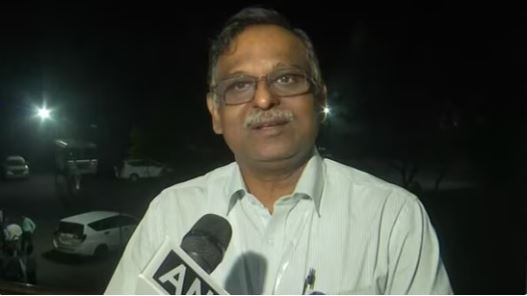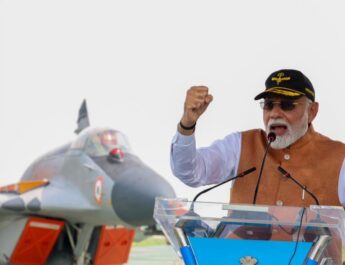Indian Space Research Organisation (ISRO)
New Delhi: V Narayanan has been appointed to succeed S Somanath as the chairman of the Indian Space Research Organisation (ISRO), as announced by the Union government on Tuesday. In addition to this role, V Narayanan will also assume the position of secretary of the Department of Space.
As per the directive from the appointments committee of the Cabinet, V Narayanan is set to take office on January 14, following the tenure of the current ISRO chief, S Somanath.
V Narayanan is expected to fulfill these responsibilities for a duration of two years or until further notice, as reported by the news agency ANI, referencing the appointment order.
The order specified, “The Appointments Committee of the Cabinet has approved the appointment of Shri V. Narayanan, Director of the Liquid Propulsion Systems Centre, Valiamala, as Secretary of the Department of Space and Chairman of the Space Commission for a period of two years effective from 14.01.2025, or until further orders, whichever is earlier.”
Who is V Narayanan, new ISRO chairman?
V. Narayanan is a prominent scientist with nearly forty years of expertise in the field of rocket and spacecraft propulsion. He is recognized as an expert in this domain and became a member of the Indian Space Research Organisation (ISRO) in 1984, serving in various roles before assuming the position of director at the Liquid Propulsion Systems Centre (LPSC).
In the early stages of his career, he focused on solid propulsion for sounding rockets, as well as the Augmented Satellite Launch Vehicle (ASLV) and Polar Satellite Launch Vehicle (PSLV) at the Vikram Sarabhai Space Centre (VSSC). Narayanan has also made significant contributions to the planning, control, and realization of ablative nozzle systems, composite motor cases, and composite igniter cases.
At present, he serves as the director of LPSC, a key facility of ISRO located in Valiamala, Thiruvananthapuram, with an additional unit in Bengaluru. Recently, ISRO has garnered attention for the successful launch of SpaDex, an indigenous space docking technology that is vital for ambitious missions such as Chandrayaan 4 and Gaganyaan. This achievement has positioned India among a select group of nations possessing such technology, alongside the United States, Russia, and China.




